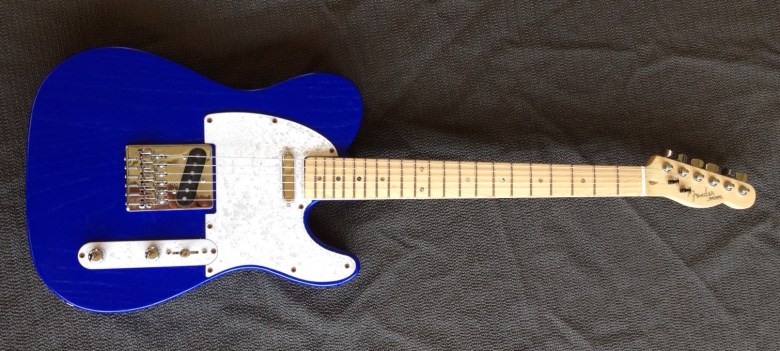Cerulean, azure, navy, royal … Much has been written about the color blue, the first human-made pigment. “Because blue contracts, retreats, it is the color of transcendence, leading us away in pursuit of the infinite,” wrote William Gass in his book On Being Blue: A Philosophical Inquiry. Wassily Kandinsky once mused: “The power of profound meaning is found in blue, and first in its physical movements of retreat from the spectator, of turning in upon its own center […] Blue is the typical heavenly color.”
And now, for the first time in two centuries, a new chemically-made pigment of the celebrated color is available for artists — YInMn Blue. It’s named after its components — Yttrium, Indium, and Manganese — and its luminous, vivid pigment never fades, even if mixed with oil and water.
Like all good discoveries, the new inorganic pigment was identified by coincidence. A team of chemists at Oregon State University (OSU), led by Mas Subramanian, was experimenting with rare earth elements while developing materials for use in electronics in 2009 when the pigment was accidentally created.
Andrew Smith, a graduate student at the time, mixed Yttrium, Indium, Manganese, and Oxygen at about 2000 °F. What emerged from the furnace was a never-before-seen brilliant blue compound. Subramanian understood immediately that his team stumbled on a major discovery.
“People have been looking for a good, durable blue color for a couple of centuries,” the researcher told NPR in 2016.

OSU patented the color in 2012, but it took five more years until the United States Environmental Protection Agency (EPA) approved YInMn, at first only for use in industrial coatings and plastics. Last May, the government agency officially approved the new pigment for commercial use, making it available to all.
The vibrant pigment caught attention long before the EPA’s official approval last year. In 2016, Shepherd Color Company acquired the license to sell the pigment commercially for exterior applications. A year later, YInMn Blue inspired a new shade of Crayola crayon called Bluetiful. The pigment has also been popular on Etsy, although the quality and authenticity of these offerings are not guaranteed.
Now, the authenticated pigment is available for sale in paint retailers like Golden in the US, according to artnet. A dry powder version has not yet been approved for public consumption.
Blue pigments, which date back 6,000 years, have been traditionally toxic and prone to fading. That’s no longer the case with YInMn, which reflects heat and absorbs UV radiation, making it cooler and more durable than pigments like cobalt blue.
“The fact that this pigment was synthesized at such high temperatures signaled that this new compound was extremely stable, a property long sought in a blue pigment,” Subramanian said in a study about the compound.
Artists in Oregon, including OSU art students, have already used the pigment in watercolors and printmaking, the university lab announced in a press release.
Since the discovery, Subramanian and his team have expanded their research, producing a range of new pigments, from bright oranges to shades of purple, turquoise, and green. They continue to search for a new stable, heat-reflecting, and brilliant red, calling it “the most elusive color to synthesize.”
Editor’s note 1/27/21 12:50pm EST: An earlier version of this article identified YInMn as the first shade of blue created in 200 years. However, it is instead the first inorganic blue pigment invented in the same time frame.

You must be logged in to post a comment.